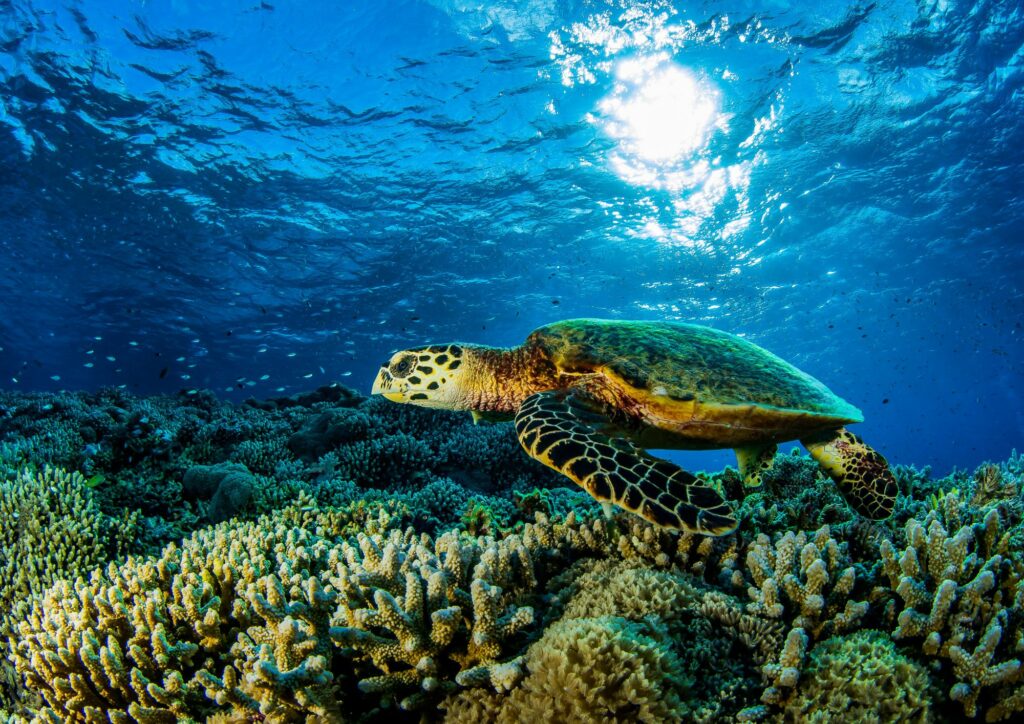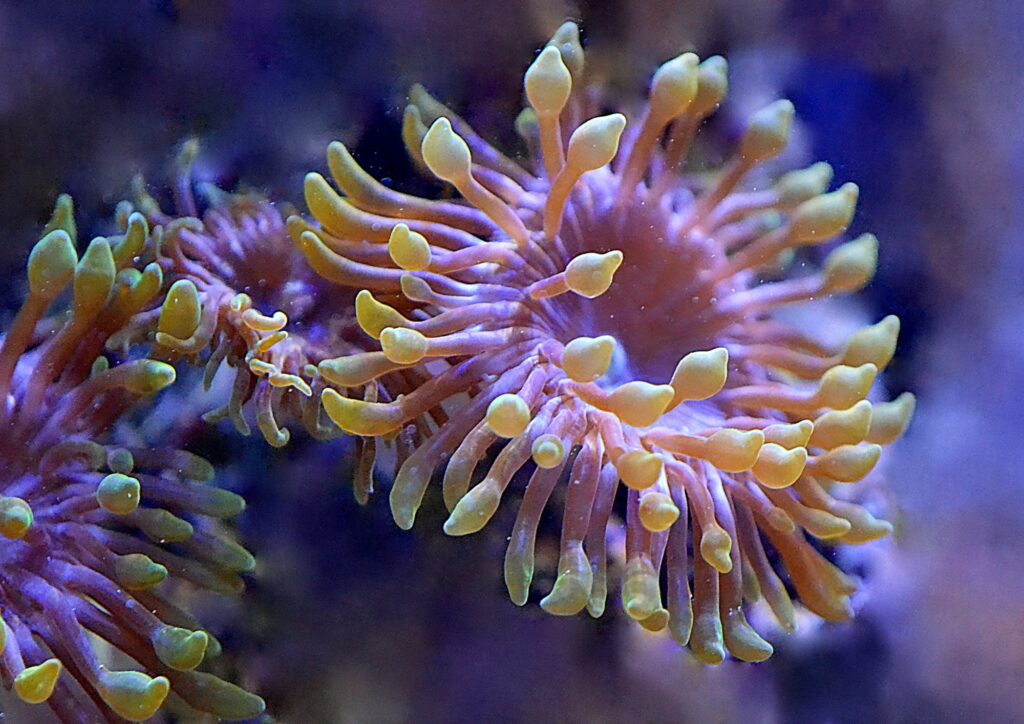For those who have had the privilege to dive beneath the surface, the sight of a coral reef, vibrant and teeming with life, is an experience beyond compare. But, these stunning underwater ecosystems face an existential threat from climate change. This blog aims to draw the lens to the ocean floor, underlining how the phenomena of climate change and ocean warming impacts our coral reefs. Keywords such as coral bleaching effects, coral reef conservation challenges, protecting coral reefs and marine ecosystems will be under focus in our journey under the blue.
The Colorful Chorus Underneath: Understanding Coral Reefs
The coral reefs are the epitome of beauty and diversity. Often described as ‘rainforests of the sea’, these captivating and intricate ecosystems provide an underwater spectacle teeming with life. Their formation is an intriguing act of nature by millions of minuscule marine organisms known as coral polyps. Each polypp participating in the creation of massive structures of stunning topography. These reef structures transform the underwater into vibrant biodiversity hotspots, providing habitat to nearly 25% of marine species.
What we witness as the splendid spectrum of scintillating colors on the corals, is an outcome of a mutually beneficial arrangement between coral polyps and minuscule algae, zooxanthellae. These microscopic algae, housed in polyps tissues, are responsible for the radiant hues of coral reefs. Besides imparting color, they also provide essential nutrients to the corals, and in return, get a safe habitat.
Climate Change: Turning the Rainbow into Ghost Towns
With significant changes in global climate marked by the rise in average temperatures, our oceans are facing threats like never before. These changes catalyze severe repercussions for the unique marine ecosystems of coral reefs. The heightened warmth of seawater proves detrimental, initiating a phenomenon dubbed ‘coral bleaching’. In this state of stress, corals expel the zooxanthellae residing in their tissues. This expulsion results in corals losing not only their vibrant color but also their vital nutrient source, causing them to turn a ghostly white.
Many times such bleached corals fail to recover, eventually leading to their death. The frequent and wide-spreading incidents of coral bleaching, primarily fueled by climate change, have rendered vast devastation on a global scale. This destruction of entire coral reefs is sadly turning the once flamboyant underwater rainforests into barren ghost towns, leading to a dramatic drop in biodiversity and disruption of the marine ecosystem.
Ocean Warming Impacts: Intensifying the Siege
Coral reefs are under siege from more than just coral bleaching. The increased ocean temperature escalates seawater’s acidity level, voicing another significant concern. The heightened acidity impedes corals’ ability to construct their calcareous skeletons – a dire factor for their growth and survival. As if dealing with disease, bleaching, and acidification wasn’t enough, the escalating ocean temperatures also boost cyclone and storm intensities. These extreme weather occurrences bring along physical destruction, causing further damage to the already suffering coral reefs.
Rising to the Challenges of Coral Reef Conservation

The battle for coral reef conservation is one that humanity needs to fight together. Global collective efforts, ranging from substantial reduction in greenhouse gas emissions, sustainable fishing practices, to effective waste management need to be rigorously implemented. At a local level, community-based initiatives can make a significant impact. The actions as simple as careful reef tourism, coral planting, or reef rehabilitation projects can pave a path for recovery. Simultaneously, technology and science also hold promise. Research in genetic engineering and selective breeding of corals may offer a solution to make corals more resilient to climate crises. Every effort to prevent climate change, no matter how small, accelerates our stride towards conserving these beautiful, crucial, and delicate marine ecosystems.
Diving into Action: The Future of Coral Reefs
Protecting coral reefs and marine ecosystems is a far cry from an easy task. It’s a challenge that rides on the waves of enormous climatic shifts and rising temperatures. The beauty of the underwater rainbow is gradually fading, and with it, the enormous biodiversity it supports. However, hope floats and with persistent conservation efforts, sustainable practices and technological breakthroughs, we might just be able to save our beloved reefs from becoming ghostly underwater deserts. As divers, and humans, it’s our privilege and responsibility to bear witness and contribute to this effort, turning the tide for our majestic marine life.

I completely agree with the post’s sentiment. It’s heartbreaking to see the once vibrant coral reefs turn into ghost towns. We must take collective action to reduce our carbon footprint and protect these ecosystems.
Ahmed, thank you for sharing your thoughts on the importance of coral reef conservation. It’s indeed heartbreaking to see these ecosystems decline due to climate change. At Gill Divers, we’re committed to not only providing an enjoyable diving experience but also promoting respect and appreciation for the ocean and its life. We believe that collective action can make a significant difference in protecting our coral reefs. I encourage you to explore our conservation efforts and learn more about how you can contribute to this important cause. For more information, please feel free to contact us at +65 6734 9373 or [email protected].
This blog post really opened my eyes to the severity of coral bleaching and its impact on marine ecosystems. I’m glad that there are efforts being made to conserve these beautiful reefs.
Dear Ling Ling Tan, thank you for sharing your thoughts on our blog post about coral reefs and the impact of climate change. We’re glad to hear that it opened your eyes to the severity of the issue. At Gill Divers, we believe it’s crucial to raise awareness about the importance of marine conservation and support efforts to protect these incredible ecosystems. If you have any further questions or would like to learn more about our initiatives, please don’t hesitate to contact us at +65 6734 9373 or [email protected]. We’re always happy to help.
I’m glad that this blog post highlighted not only the problems but also the potential solutions, such as coral planting and reef rehabilitation projects. Every effort counts in protecting our marine ecosystems.
Thank you so much for sharing your thoughts on our blog post! We’re thrilled to hear that you appreciated the emphasis on solutions, such as coral planting and reef rehabilitation projects. At Gill Divers, we believe that every small step counts in protecting our marine ecosystems. Our goal is not only to educate people about the importance of conservation but also to inspire them to take action. If you have any questions or would like to learn more about our conservation efforts, please don’t hesitate to reach out to us at [email protected] or give us a call at +65 6734 9373.